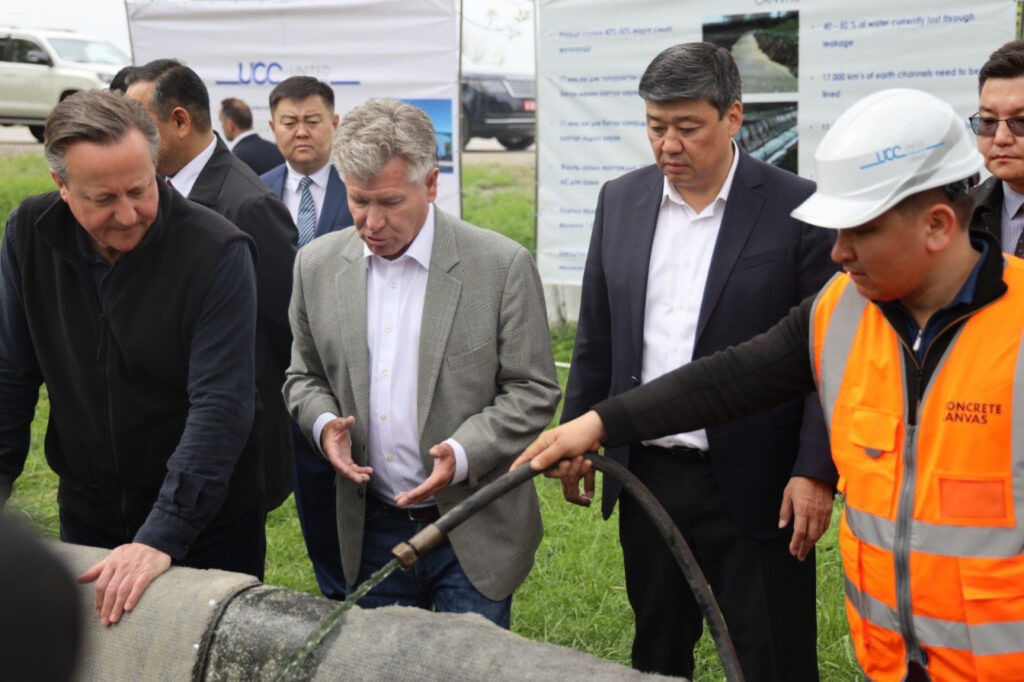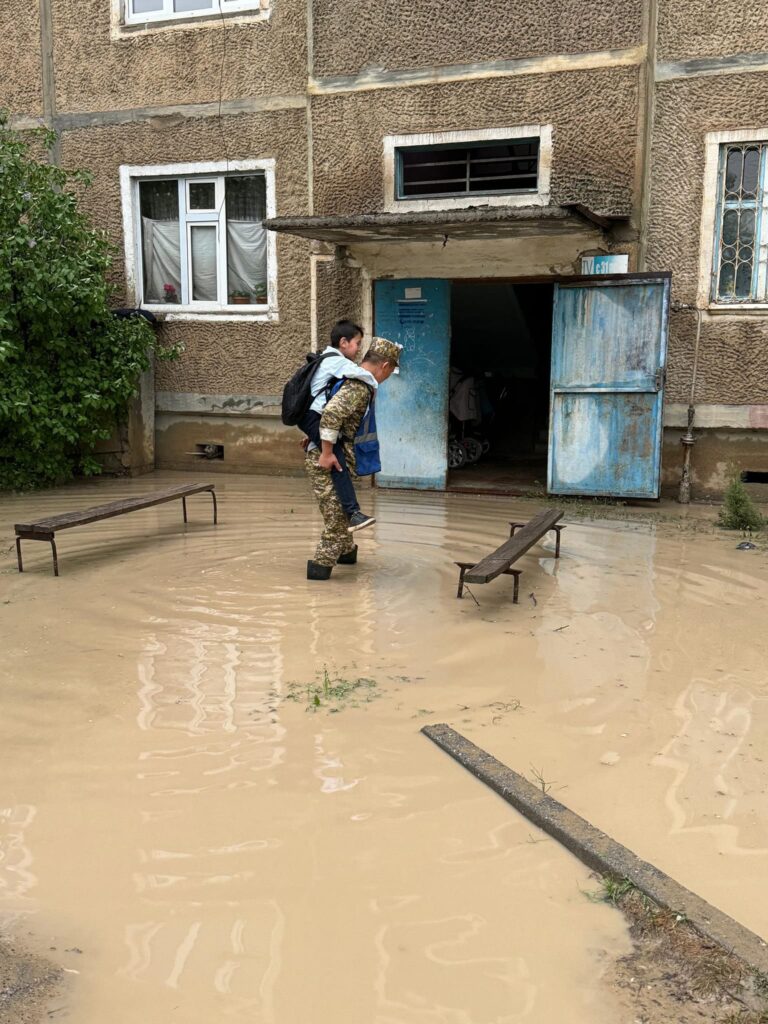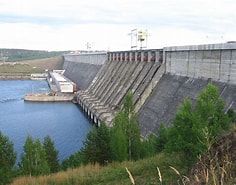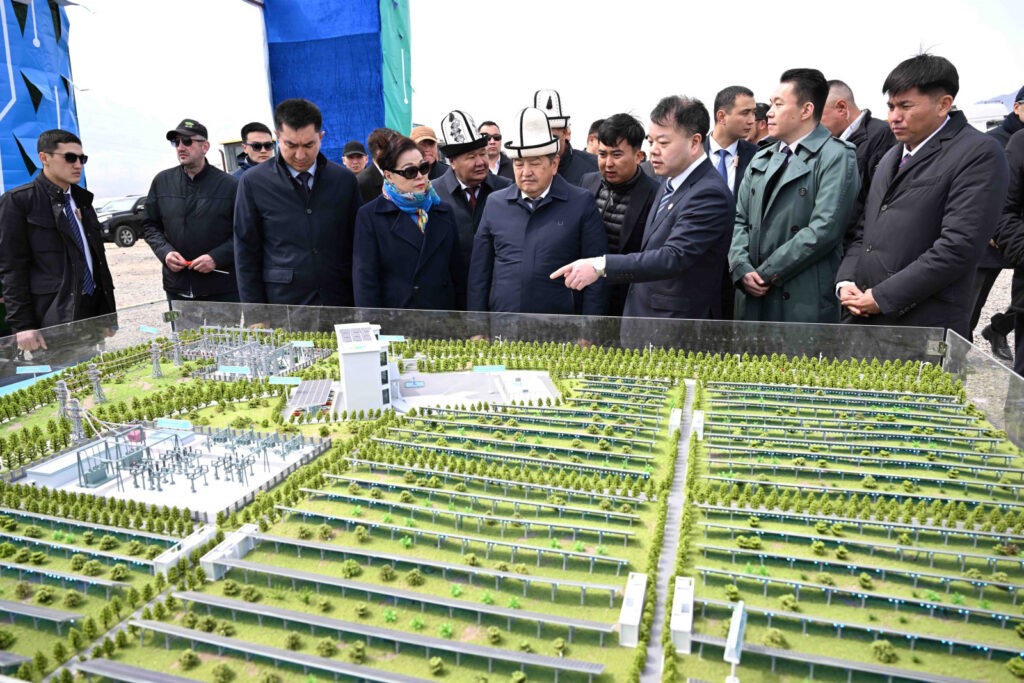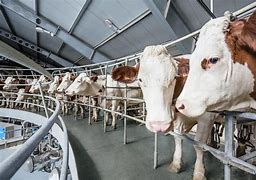U.K. Company to Manufacture Innovative Material to Improve Irrigation in Kyrgyzstan
Back in November 2023, Chairman of the Cabinet of Ministers of the Kyrgyz Republic, Akylbek Japarov met head of Concrete Canvas, Will Crawford in Cardiff to discuss the establishment of a plant in Kyrgyzstan. On 23 April representatives of the company travelled to the Chui region of northern Kyrgyzstan for further negotiations attended by Kyrgyzstan’s Deputy Chairman of the Cabinet of Ministers - Minister of Water Resources, Agriculture and Processing Industry, Bakyt Torobayev and British Foreign Secretary David Cameron. Concrete Canvas, produces waterproof flexible concrete filled geosynthetic composite mats used for lining irrigation canals to prevent erosion and reduce seepage losses. Hailing the benefits of the product, Torobayev stated, “Across Kyrgyzstan, the length of canals is 30 thousand kilometres, including 11 thousand kilometres of -unsurfaced- canals. By laying concrete material on these canals, we will avoid seepage of water and ensure its efficient use. Kyrgyzstan is an agricultural country with a lot of arable land, so we really need such materials. The plan is to build the company’s plant in the Osh region in south Kyrgyzstan in the near future.” Material produced by the Kyrgyzstan plant will meet domestic demand and could also be exported to Russia and Uzbekistan.


